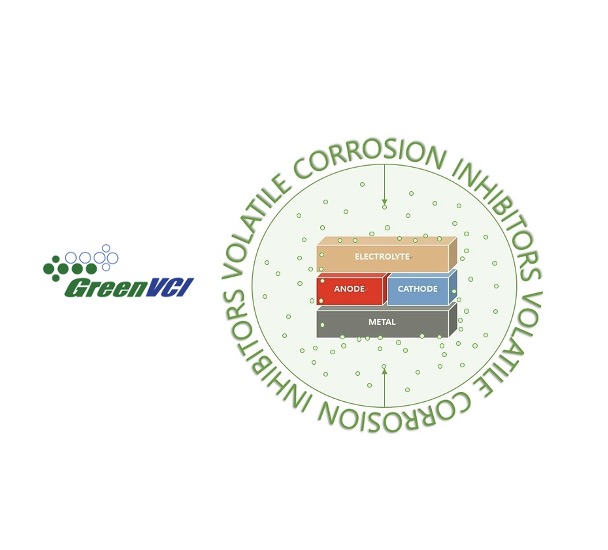GreenVCI®
The World-Class Anti-Corrosion & Quality Control Solution You Can Trust
Case Studies
VCI: How does it work?
2023.02.13
VCI: How does it work?
Volatile Corrosion Inhibitors, or VCI, are chemicals utilized to shield metal surfaces from harm caused by water and other environmental factors. In the modern day industrial and manufacturing world, the use of VCI is a necessary part of the packaging process for many metal components.
But what exactly are VCI and how do they work?
VCI is a type of corrosion inhibitor that releases vapor into the atmosphere which forms a barrier over the metal's surface. The vapor molecules in the VCI form a protective coating that blocks out moisture, salt, and other corrosive elements. This provides long-term protection against corrosion, even in extreme environmental conditions.
VCI can come in various forms such as films, papers, powder, and liquids. The most common type is VCI film, which is utilized to safeguard metal parts while in storage or being transported. The film is put around the metal parts, and when the VCI molecules are released, they generate a protective cover on the metal.
VCI is an excellent way to protect metallic surfaces from corrosion as its efficacy is contingent on several components such as the metal type, the environment, and the type of VCI used. For instance, the VCI designed for ferrous metals, such as iron and steel, is different from that intended for non-ferrous metals, like brass, copper, and aluminum, as the latter include different VCI molecules to guard the metals from corroding.
In summary, VCI is an effective defense against corrosion, as it creates a defensive film on the metal surface by releasing vapors into the atmosphere. Whether you need to shield your metallic parts during storage or shipment, VCI is an ideal choice and will provide long-term protection.
Volatile Corrosion Inhibitors, or VCI, are chemicals utilized to shield metal surfaces from harm caused by water and other environmental factors. In the modern day industrial and manufacturing world, the use of VCI is a necessary part of the packaging process for many metal components.
But what exactly are VCI and how do they work?
VCI is a type of corrosion inhibitor that releases vapor into the atmosphere which forms a barrier over the metal's surface. The vapor molecules in the VCI form a protective coating that blocks out moisture, salt, and other corrosive elements. This provides long-term protection against corrosion, even in extreme environmental conditions.
VCI can come in various forms such as films, papers, powder, and liquids. The most common type is VCI film, which is utilized to safeguard metal parts while in storage or being transported. The film is put around the metal parts, and when the VCI molecules are released, they generate a protective cover on the metal.
VCI is an excellent way to protect metallic surfaces from corrosion as its efficacy is contingent on several components such as the metal type, the environment, and the type of VCI used. For instance, the VCI designed for ferrous metals, such as iron and steel, is different from that intended for non-ferrous metals, like brass, copper, and aluminum, as the latter include different VCI molecules to guard the metals from corroding.
In summary, VCI is an effective defense against corrosion, as it creates a defensive film on the metal surface by releasing vapors into the atmosphere. Whether you need to shield your metallic parts during storage or shipment, VCI is an ideal choice and will provide long-term protection.

 EN
EN







